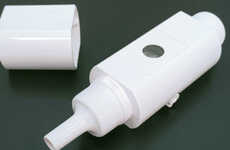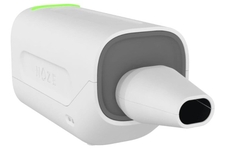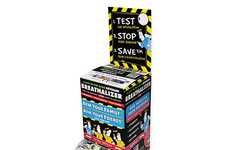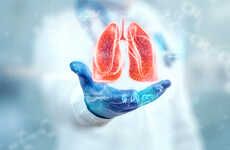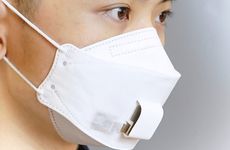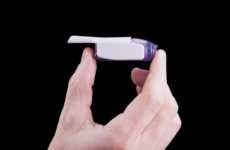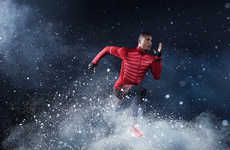
Cristina Davis is Researching Dolphin Lungs Using a Breathalyzer
Alyson Wyers — November 4, 2014 — Lifestyle
References: acs.org & fastcoexist
Biomedical engineering professor Cristina Davis has found an application for breathalyzers that goes far beyond identifying drunk drivers. The University of California professor is also the lead author of research on the dolphin breathalyzer. The tool typically used to determine alcohol content in humans is now being used as a determinant of dolphin health.
Cristina Davis and her team out of Sarasota, Florida are developing the breathalyzer tool to diagnose lung problems in dolphins. Davis notes due to the way in which marine mammals breathe, they are more likely to get infections than a land-based mammal. Mysterious pathogens can infect the "explosive breathers" and as such, Davis hopes to figure out more about what dolphins really inhale using the breathalyzer sampling tool she and her team developed.
Cristina Davis and her team out of Sarasota, Florida are developing the breathalyzer tool to diagnose lung problems in dolphins. Davis notes due to the way in which marine mammals breathe, they are more likely to get infections than a land-based mammal. Mysterious pathogens can infect the "explosive breathers" and as such, Davis hopes to figure out more about what dolphins really inhale using the breathalyzer sampling tool she and her team developed.
Trend Themes
1. Biomedical Engineering in Animal Health - Opportunities for applying biomedical engineering techniques to diagnose and treat health issues in animals.
2. Alternative Applications for Breathalyzers - Exploring new uses for breathalyzer technology beyond alcohol testing, such as diagnosing health conditions in animals.
3. Diagnostics for Marine Mammals - Developing specialized tools and techniques for diagnosing health problems in marine mammals.
Industry Implications
1. Biotechnology - Using advanced techniques and tools to diagnose and treat health issues in animals.
2. Healthcare - Applying innovative technologies to improve diagnostics and treatments for animals.
3. Marine Conservation - Developing solutions to protect and preserve the health of marine mammals.
1.9
Score
Popularity
Activity
Freshness


